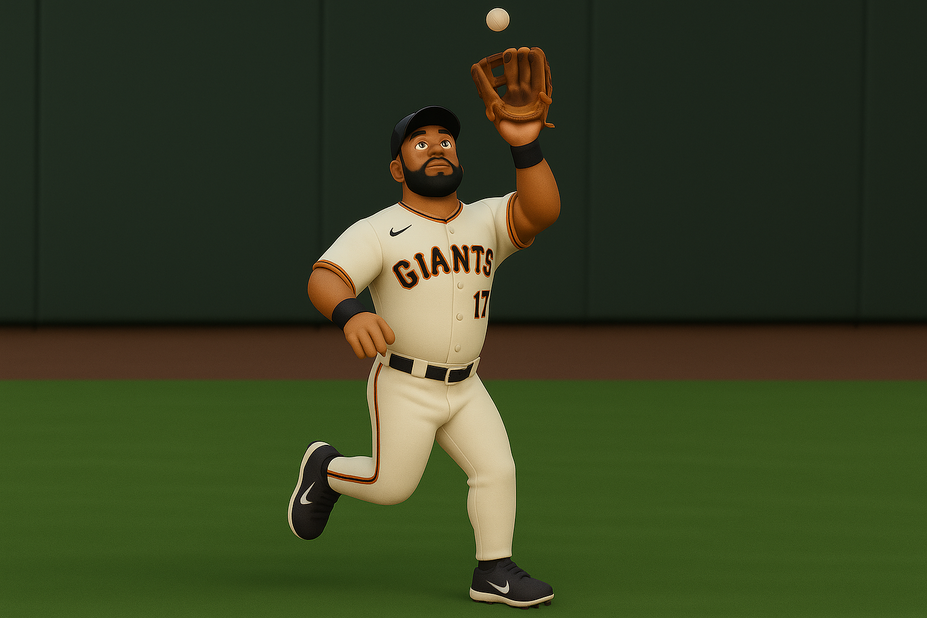By Mauricio Segura August 17, 2025

Photo: GBT Graphics
The San Francisco Giants’ season has been rough enough between the revolving door of injuries, a string of bullpen reshuffles, and a lineup that looks more like a patchwork quilt than a contender’s core. But last week, the team found itself battling a different kind of opponent: its own fans. Outfielder Heliot Ramos, one of the few bright spots in a year otherwise defined by frustration, made headlines when he called out the home crowd for turning hostile during a skid that has dragged the club further into irrelevance. “It feels like they’re against us,” he said after another loss was met with a chorus of boos at Oracle Park. The comment was short, but it landed with force and sparked debate that reached far beyond San Francisco.
The tension is not new. Giants fans, spoiled by the three World Series titles of the early 2010s, have grown restless watching a team stuck in a cycle of false starts. The front office has spent two years promising a reset led by Buster Posey in the boardroom and Bob Melvin in the dugout, but the results have been a slow bleed of inconsistency. At Oracle, the frustration has been audible with boos echoing off the brick walls, fans heading for the exits in the seventh, and more empty seats than the organization is used to seeing. Ramos’s comments ripped the scab off a question that has been quietly growing louder: how much loyalty does a franchise owe its fans, and how much patience do the fans owe back?
From Ramos’s perspective, the sting makes sense. At 24, he is hitting in the heart of the order and trying to establish himself as a cornerstone while everything else around him wobbles. For a player still trying to secure his long-term place, being booed at home has to feel like betrayal. Athletes often say the fans are the “tenth man” or the “sixth man,” an extra lift when games get heavy. But when that energy turns negative, especially in front of family and friends, it is easy to see why emotions boil over. Ramos was not the first Giant to feel it. Players from Barry Bonds to Brandon Belt have admitted that the Oracle crowd can be as punishing as it is passionate.
There is another side of the argument. Giants fans are among the most loyal in baseball, pouring into the park even when the product on the field struggles. They have seen the club pass on big-name free agents, only to end up with patchwork veterans and prospects not quite ready for prime time. From their point of view, booing is not abandonment, it is accountability. In a market where tickets are not cheap, fans expect better than watching their team flounder in the middle of August. In many ways, the boos are proof that people still care enough to be angry. Indifference, not disapproval, is the real death sentence for a franchise.
The episode also highlights a larger cultural shift in baseball. Clubhouses today are far more open to dialogue than they were a generation ago. Players have social media, podcasts, and direct access to their own narratives. Ramos’s comments were not filtered through a front office or smoothed out by a PR staff. They were raw, emotional, and real. That candor is refreshing, but it also means every word carries risk. For a team already battling questions about its leadership, the last thing management wants is the perception of a divide between players and their own supporters.
Ironically, Ramos’s frustration might serve as the jolt this team needs. His words opened up a conversation about expectations and effort that both sides need to have. Fans will always remember the parades down Market Street, and that nostalgia fuels the demand for something better than mediocrity. Players, on the other hand, need room to develop without the constant weight of comparison. The bridge between the two is not silence, it is understanding. Booing will not suddenly turn the Giants into winners, but blind support will not fix structural issues either.
As the Giants limp through the final weeks of the season, Ramos’s outburst may linger longer than any box score. It has already forced the fan base and the franchise to look at one another with less romance and more honesty. In the end, both sides want the same thing: a competitive team worth cheering for. The journey back to that point is going to take more than raw talent or impulsive criticism. It will take trust, transparency, and a front office willing to make bold choices. Until then, the boos will echo, the players will bristle, and Oracle Park will remain the place where San Francisco’s love affair with its baseball team plays out, flaws and all.















